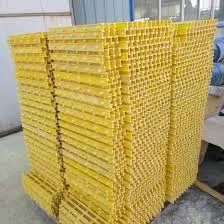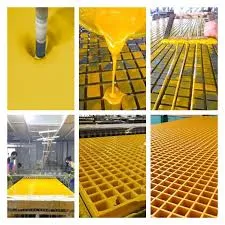
-
 Afrikaans
Afrikaans -
 Albanian
Albanian -
 Amharic
Amharic -
 Arabic
Arabic -
 Armenian
Armenian -
 Azerbaijani
Azerbaijani -
 Basque
Basque -
 Belarusian
Belarusian -
 Bengali
Bengali -
 Bosnian
Bosnian -
 Bulgarian
Bulgarian -
 Catalan
Catalan -
 Cebuano
Cebuano -
 China
China -
 China (Taiwan)
China (Taiwan) -
 Corsican
Corsican -
 Croatian
Croatian -
 Czech
Czech -
 Danish
Danish -
 Dutch
Dutch -
 English
English -
 Esperanto
Esperanto -
 Estonian
Estonian -
 Finnish
Finnish -
 French
French -
 Frisian
Frisian -
 Galician
Galician -
 Georgian
Georgian -
 German
German -
 Greek
Greek -
 Gujarati
Gujarati -
 Haitian Creole
Haitian Creole -
 hausa
hausa -
 hawaiian
hawaiian -
 Hebrew
Hebrew -
 Hindi
Hindi -
 Miao
Miao -
 Hungarian
Hungarian -
 Icelandic
Icelandic -
 igbo
igbo -
 Indonesian
Indonesian -
 irish
irish -
 Italian
Italian -
 Japanese
Japanese -
 Javanese
Javanese -
 Kannada
Kannada -
 kazakh
kazakh -
 Khmer
Khmer -
 Rwandese
Rwandese -
 Korean
Korean -
 Kurdish
Kurdish -
 Kyrgyz
Kyrgyz -
 Lao
Lao -
 Latin
Latin -
 Latvian
Latvian -
 Lithuanian
Lithuanian -
 Luxembourgish
Luxembourgish -
 Macedonian
Macedonian -
 Malgashi
Malgashi -
 Malay
Malay -
 Malayalam
Malayalam -
 Maltese
Maltese -
 Maori
Maori -
 Marathi
Marathi -
 Mongolian
Mongolian -
 Myanmar
Myanmar -
 Nepali
Nepali -
 Norwegian
Norwegian -
 Norwegian
Norwegian -
 Occitan
Occitan -
 Pashto
Pashto -
 Persian
Persian -
 Polish
Polish -
 Portuguese
Portuguese -
 Punjabi
Punjabi -
 Romanian
Romanian -
 Russian
Russian -
 Samoan
Samoan -
 Scottish Gaelic
Scottish Gaelic -
 Serbian
Serbian -
 Sesotho
Sesotho -
 Shona
Shona -
 Sindhi
Sindhi -
 Sinhala
Sinhala -
 Slovak
Slovak -
 Slovenian
Slovenian -
 Somali
Somali -
 Spanish
Spanish -
 Sundanese
Sundanese -
 Swahili
Swahili -
 Swedish
Swedish -
 Tagalog
Tagalog -
 Tajik
Tajik -
 Tamil
Tamil -
 Tatar
Tatar -
 Telugu
Telugu -
 Thai
Thai -
 Turkish
Turkish -
 Turkmen
Turkmen -
 Ukrainian
Ukrainian -
 Urdu
Urdu -
 Uighur
Uighur -
 Uzbek
Uzbek -
 Vietnamese
Vietnamese -
 Welsh
Welsh -
 Bantu
Bantu -
 Yiddish
Yiddish -
 Yoruba
Yoruba -
 Zulu
Zulu
Feb . 10, 2025 11:43
Back to list
fiberglass stack
Fiberglass stacks are a crucial component in many industrial sectors, offering a versatile solution for emissions control, durability, and efficiency in smoke exhaust systems. These stacks are meticulously crafted using fiberglass-reinforced plastics (FRP), providing robust resistance to a wide range of chemical exposures, temperature variations, and physical stresses. As industries increasingly focus on sustainable practices and emission regulations, the demand for high-quality fiberglass stacks continues to rise.
Furthermore, fiberglass stacks contribute to environmental sustainability. The material is significantly lighter than traditional stack materials like steel or concrete, resulting in reduced energy consumption during transportation and installation. This characteristic not only lowers the carbon footprint but also reduces logistical costs. Moreover, the ease of installation translates into shorter project timelines, decreasing downtime in critical industrial operations. Experts in the field of industrial safety stress the importance of trustworthiness and reliability in material selection for emissions management systems. Fiberglass stacks, with their documented track record in a plethora of applications, provide assurance of reliability. Companies investing in these stacks benefit from extensive research and field data supporting the fiberglass's performance under various environmental conditions, making them a trustworthy choice for long-term operations. For industrial managers considering a transition to fiberglass stacks, it's crucial to engage with suppliers who demonstrate not only expertise in fiberglass technology but also a thorough understanding of specific industrial needs. Suppliers with a proven track record of delivering quality solutions and offering ongoing support become essential partners in achieving operational excellence and compliance. In conclusion, fiberglass stacks represent the intersection of technology, sustainability, and industrial efficiency. Their unique properties offer compelling advantages over traditional materials, from improved durability and compliance to significant logistical and environmental benefits. As industries move towards more sustainable and efficient production practices, investing in fiberglass stacks becomes a sound strategic decision, ensuring both regulatory compliance and operational excellence. By prioritizing quality, customization, and reliability, companies can effectively leverage fiberglass stacks to meet the evolving demands of modern industries.


Furthermore, fiberglass stacks contribute to environmental sustainability. The material is significantly lighter than traditional stack materials like steel or concrete, resulting in reduced energy consumption during transportation and installation. This characteristic not only lowers the carbon footprint but also reduces logistical costs. Moreover, the ease of installation translates into shorter project timelines, decreasing downtime in critical industrial operations. Experts in the field of industrial safety stress the importance of trustworthiness and reliability in material selection for emissions management systems. Fiberglass stacks, with their documented track record in a plethora of applications, provide assurance of reliability. Companies investing in these stacks benefit from extensive research and field data supporting the fiberglass's performance under various environmental conditions, making them a trustworthy choice for long-term operations. For industrial managers considering a transition to fiberglass stacks, it's crucial to engage with suppliers who demonstrate not only expertise in fiberglass technology but also a thorough understanding of specific industrial needs. Suppliers with a proven track record of delivering quality solutions and offering ongoing support become essential partners in achieving operational excellence and compliance. In conclusion, fiberglass stacks represent the intersection of technology, sustainability, and industrial efficiency. Their unique properties offer compelling advantages over traditional materials, from improved durability and compliance to significant logistical and environmental benefits. As industries move towards more sustainable and efficient production practices, investing in fiberglass stacks becomes a sound strategic decision, ensuring both regulatory compliance and operational excellence. By prioritizing quality, customization, and reliability, companies can effectively leverage fiberglass stacks to meet the evolving demands of modern industries.
Next:
Related Products









